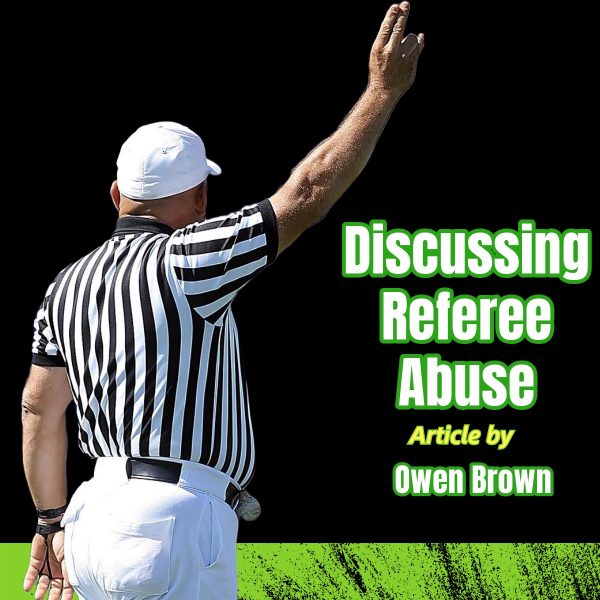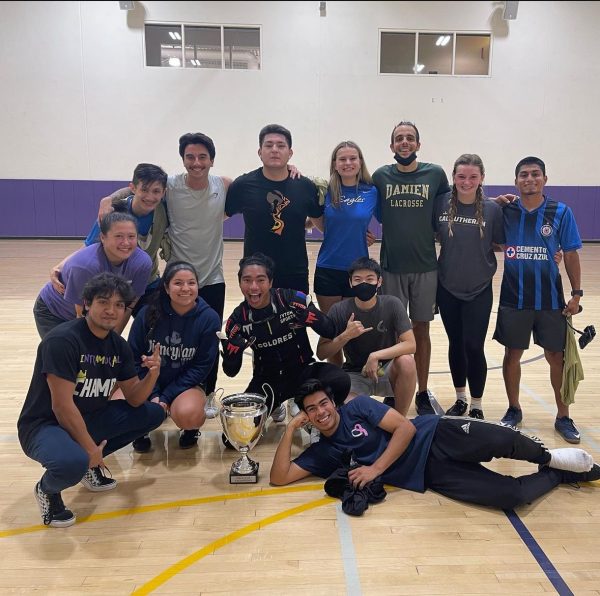Changes Need to be Made to Cal Lutheran’s Title IX Process
December 10, 2019
Three weeks ago, The Echo released a 4,774-word long article that detailed three women’s problematic experiences with sexual misconduct and Title IX processes at California Lutheran University. Members of our editing staff worked on this piece for months, and while it was at times emotionally challenging, we believed it was worth it to give these women a platform to share their experiences and to hopefully inspire the university to reconsider its current system.
However, weeks later, The Echo has not heard of any proposed actions by the university or received any feedback from administration.
While the most basic purpose of journalism is to inform, an investigative article supports a wider objective through publicizing wrongdoing: inciting change. And let’s be clear: There are changes that need to be made.
Our article did not just describe less-than-ideal interactions with the Title IX process at Cal Lutheran, it detailed apparent violations of policy and possibly federal law.
For example, in the story of Allison, who said she was raped by three individuals in September 2016, Allison said she was never sent a revised investigation report containing new evidence that led to the alleged perpetrators being found not guilty. According to S. Daniel Carter, an expert on the federal Clery Act, the act states that all parties in an investigation are entitled to all information used in a proceeding.
Additionally, student responses and stories received by The Echo since publication suggest that the three cases are not isolated, but rather part of a larger problem at the university, both with internal processes and staff training.
“I’ve heard that people are hesitant to come forward at CLU because they’re not confident about the personnel or our procedures,” Associate Professor of Criminology and Criminal Justice Molly George said.
George said she became more aware of Title IX policies at Cal Lutheran after students reported their sexual assaults to her.
“I started asking questions about how we handle these cases institutionally. And I got to learn a little bit more after being invited to sit in on an [Title IX] investigator training workshop,” George said.
George said she has concerns about the multiple roles that Title IX coordinators and investigators play at Cal Lutheran and potential conflicts of interest arising from these roles. Title IX Coordinator Jim McHugh is also the associate vice president for Athletic Affairs and Deputy Title IX Coordinator Chris Paul is the assistant dean of students and director of Residence Life and Student Conduct.
“One specific area of concern is the use of internal investigators. I think that raises questions about their ability to be objective, and also to kind of prioritize the welfare of people above all other interests. And not saying that our current staff doesn’t care about people, they absolutely do,” George said. “I just think we need to examine the background and the training of people who are tasked with these huge jobs.”
On Monday, Dec. 9, Paul and Coordinator of Recreational Sports and Wellness Ryan Kolter hosted a “Lunch and Learn” on sexual violence prevention and Title IX. While events like these that inform students and staff on consent and reporting options are important, with only four people in attendance other than Echo staff, applicability was limited. Administrators should reevaluate how they promote these events and perhaps consider more frequent mandatory trainings.
Additionally discussed at the “Lunch and Learn” was the difficulty of shaping policies to ever-changing state and federal laws.
“We do not have any further [university specific] updates planned at this time. We update our process based on evolving state and federal regulations along with the guidance of experts in the field,” Paul said via email.
While Title IX is federally governed, there are changes Cal Lutheran can make on its own. George said changes she would like to see include more emphasis on the option for students to report to the police, enhanced prevention training on the definition of affirmative consent and assurances that everyone involved in the Title IX process has the necessary resources to carry out their roles.
Senior Evelyn Peller, who was a resident assistant in Rasmussen Hall during her sophomore year, said she remembered Title IX training for RAs consisted of two sessions that included watching the “tea” video about consent and instruction to report all possible Title IX violations to the Title IX coordinators. Peller said she remembered definitions of violations were provided on a poster placed on RAs doors and were not further elaborated on.
One way to interpret the Title IX coordinators’ silence on our article is an affirmation of its truth. If there was a factual error in its contents, you can bet they would let us know.
Perhaps the university is taking a strategic inaction approach to the situation. According to an article by Ron Smith, a public relations expert, one way that organizations may respond to criticism is by taking no action and hoping the situation blows over.
“Strategic inaction may be a useful strategy if the stakes are not too high. But be forewarned: Some problems do not fade away, especially those fanned by the opposition. By doing nothing, an organization risks allowing the problem to grow,” Smith wrote.
I hope that the Cal Lutheran community does not allow this problem to fade away, but rather takes deliberate action to resolve it. This duty ultimately falls upon administration to admit that the Title IX system at Cal Lutheran is flawed, and to design and follow new policies within federal guidelines to ensure that everyone involved in an investigation is provided with the support and resources they need.
However, if they won’t do this on their own, students, staff, faculty and any other members of the community: if you read our article and were upset by it, do something. Let the administration know that changes need to be made. You can send President Chris Kimball an email at [email protected]. And if you have gone through the Title IX process at Cal Lutheran, and are interested in discussing your experience either on-the-record or confidentially, send us an email at [email protected].
It’s on all of us to ensure that situations as high-stakes as Title IX cases are handled with the utmost care. Don’t let this issue fade away.










